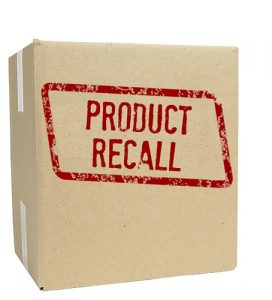
The need to disclose ingredients, nutritional value and other properties of food products is an evolving field – look no further than the ongoing debates about GMO labeling and the revised nutrition facts panel for evidence. That said, it pays for producers to occasionally renew focus on the rules already on the books, to make sure their items are in compliance at all times.
Disclosure of common allergens is one such regulation deserving continued attention. This rule is in place to protect the public and keep companies free from liability, and it’s impossible to overstate its importance.
Paying Close Attention
Quality Assurance Magazine recently focused on the problem of undeclared allergens. These ingredients remain the No. 1 reason for food product recalls carried out by both the Food and Drug Administration and the Department of Agriculture. Companies need to get up to speed with the details of the relevant laws. And ensure that they won’t be the next to be surprised by an undeclared ingredient.
The news source explained that better hazard analysis processes are essential. With undeclared ingredients still the most common recall cause, it’s clear that organizations have to take definitive action, rather than simply deciding that contamination probably won’t happen and moving on.
“Mislabeling is actually a more common recall reason than cross-contamination.”
While producers may assume that the lurking possibility of cross-contamination is a main culprit behind unexpect allergens. And the related recalls Quality Assurance explained that mislabeling is actually more common. Between 2007 and 2012, more than half of allergen recalls with one clear. Cause were due to packages being sent out with insufficient label control.
When Mislabeling Occurs
A recent example from the USDA’s recall list shows what mislabeling looks like in action. Willow Tree Poultry Farm has to recall 440 pounds of tuna salad because it left the factory with the wrong labels – the items have “buffalo style chicken salad” printed on them instead of mentioning tuna.
Whole Foods Market employees spotted the switch-up, prompting a recall for “undeclared allergen” recalls. To avoid these issues, it’s important for companies to focus on labeling, from initial design through application to products.
Labeling Products In-house
Companies that decide to handle label creation at their own facilities instead of outsourcing. This key process should ensure that they have high-quality hardware and software. So their product labels will have a professional look and feel, inspiring confidence in the brand. This calls for the use of powerful printers. Such as the Primera Primera LX1000, available from our U.S. store or on our Canadian page.
 Visit our US Store
Visit our US Store Visit our Canadian Store
Visit our Canadian Store US Customers
US Customers
 US Customers
US Customers Follow us on facebook
Follow us on facebook Follow us on twitter
Follow us on twitter Follow us on linkedin
Follow us on linkedin Follow us on youtube
Follow us on youtube Follow us on google+
Follow us on google+ Pinterest
Pinterest
Leave a Reply